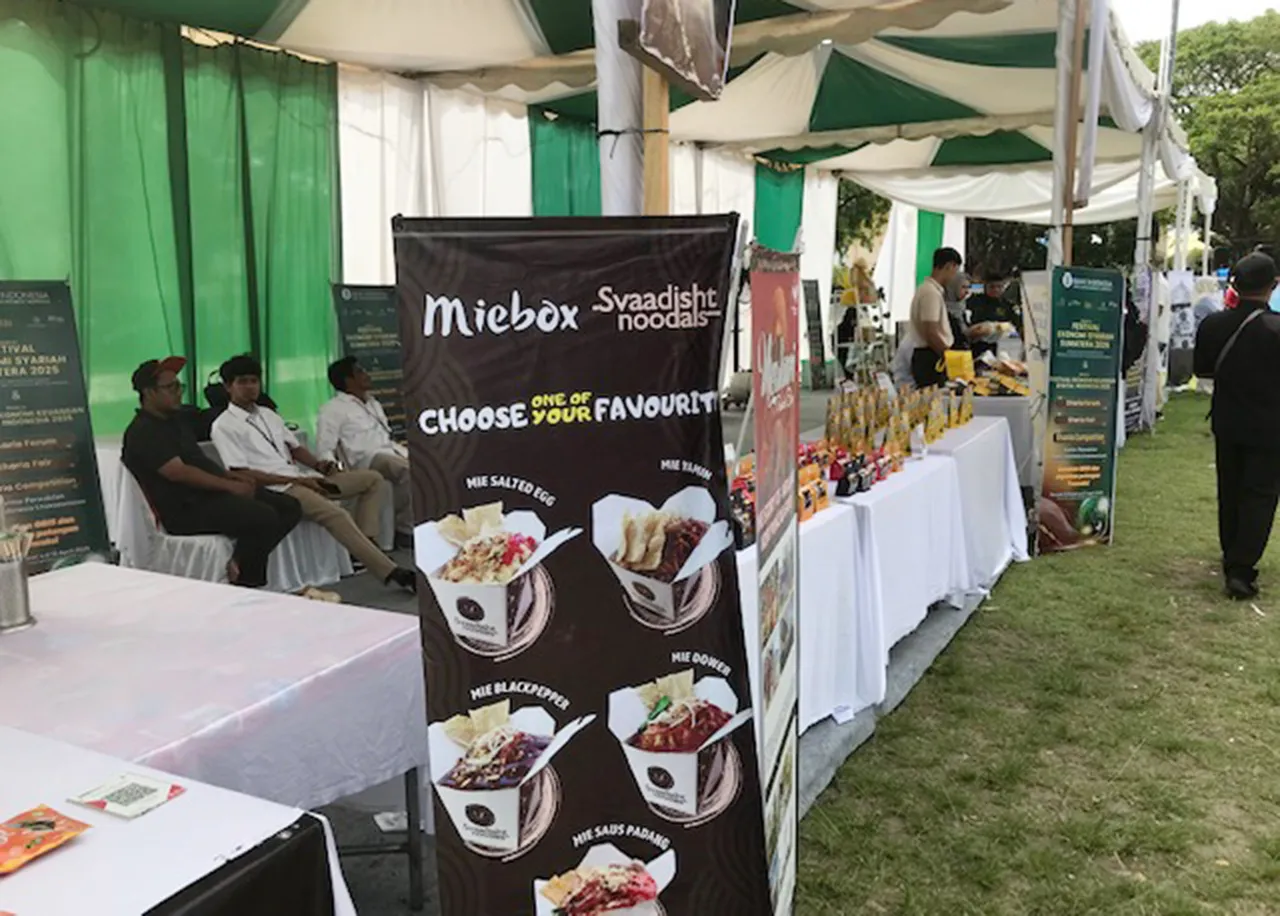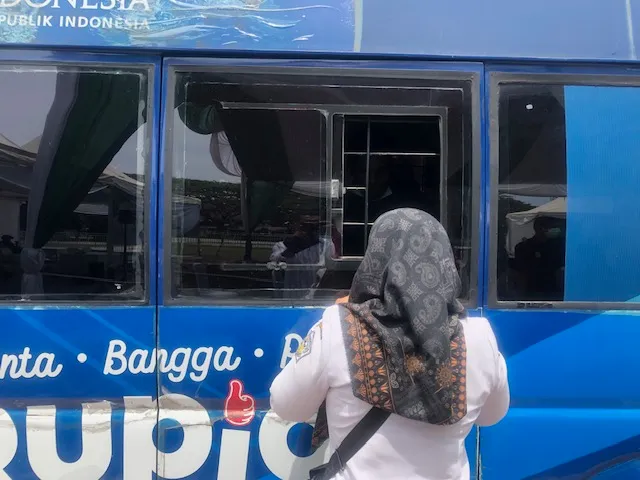
Exchanging smaller rupiah denominations is a tradition of Indonesian people when Eid al-Fitr and Eid al-Adha arrive. People hunt for small denominations for their holiday needs.
The sun in Lhokseumawe City, Indonesia, shone rather dimly, Wednesday (3/19/2025). However, the heat was still felt and made it stifling even though it was only 10:00. Even outside the month of Ramadan, the weather in Lhokseumawe always feels hot.
Lapangan Hiraq Lhokseumawe began to be crowded with residents who wanted to exchange rupiah denominations, a routine moment every time Eid al-Fitr approached. A large tent had been set up there, surrounded by small tents where Micro, Small, and Medium Enterprises (MSMEs) displayed their products. On the west side, there were rows of cash cars from several banks in Lhokseumawe, including the cash car of the Bank Indonesia Lhokseumawe Representative Office.
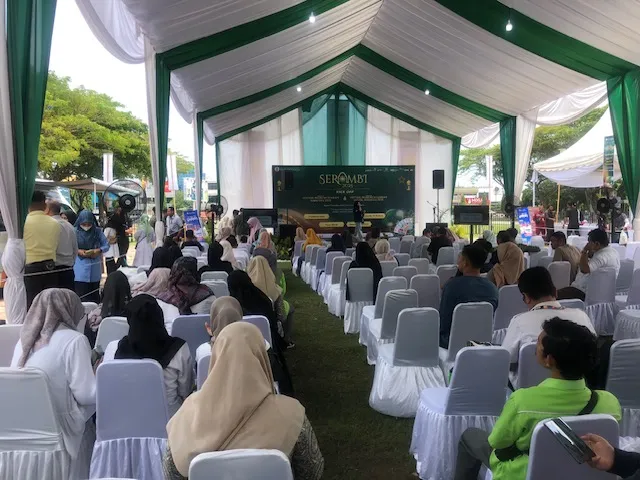
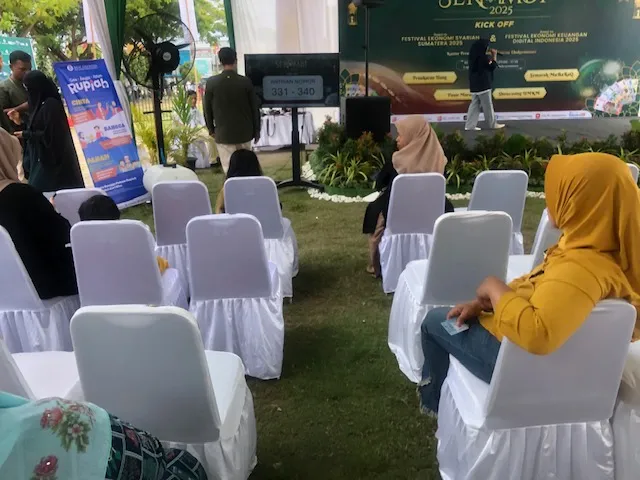
When entering, residents were asked for proof of ordering rupiah exchange through the mobile cash on the pintar.bi.go.id site. It is not enough to just show the barcode like buying subsidized fuel, residents are also asked to show their ID cards. TNI and Polri members are guarding the area, as if there is a potential for security disturbances.
A housewife with two children, insisted when she was forbidden to enter because she did not bring her ID card. "I left from Krueng Geukueh, don't tell me to bring my ID card again. I also registered for this using my ID card," said the woman adamantly. Her persistence made the security members of the Bank Indonesia Lhokseumawe Representative Office have to give in.
The mother with two children went in. But once inside, she and all residents who wanted to exchange rupiah notes had to show their ID cards again. When registering to get a queue number served by students, they were asked for their ID cards again.
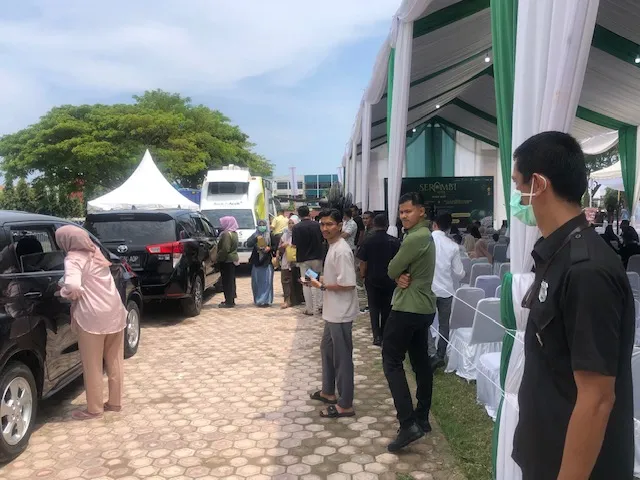
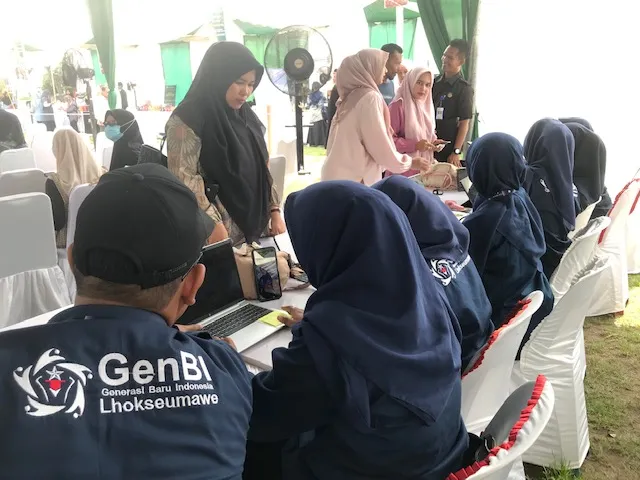
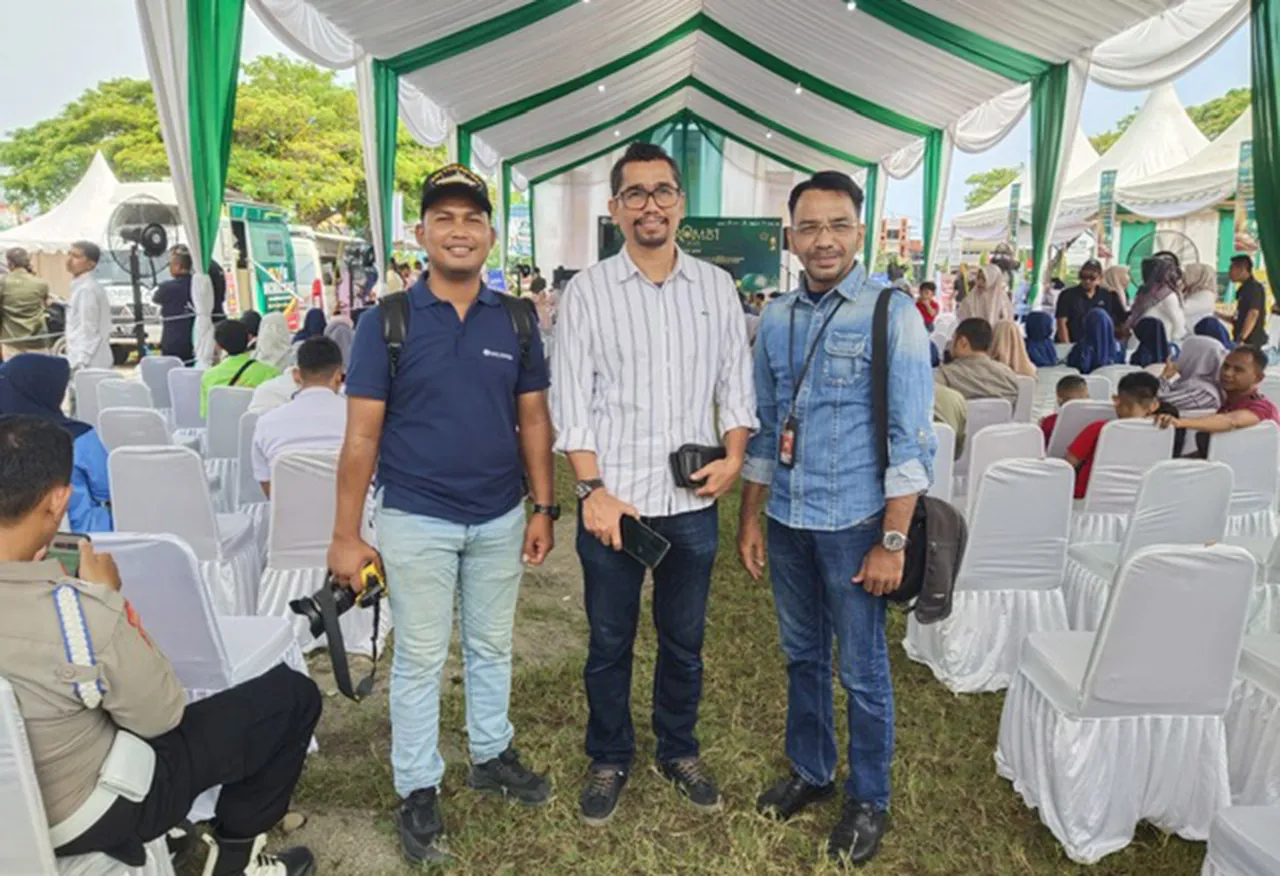
"Amazing, this is more stringent than the inspection at the airport where you are only asked to show your ID card once," said a man in a satirical tone.
The complicated process of exchanging rupiah notes inevitably made Rizal Saputra SH annoyed. The lawyer who is familiar with journalists expressed his disappointment. Since at the entrance, he was annoyed because his wife was prohibited from entering. "In fact, there is no prohibition on entering even if you don't exchange money," said Rizal annoyed.
According to him, the location for exchanging rupiah denominations does not need to be an exclusive place that can only be accessed by people who want to exchange money. In fact, the place should be crowded because there are several other activities that people can do there, such as studying at the MSME outlets in Lapangan Hiraq Lhokseumawe.
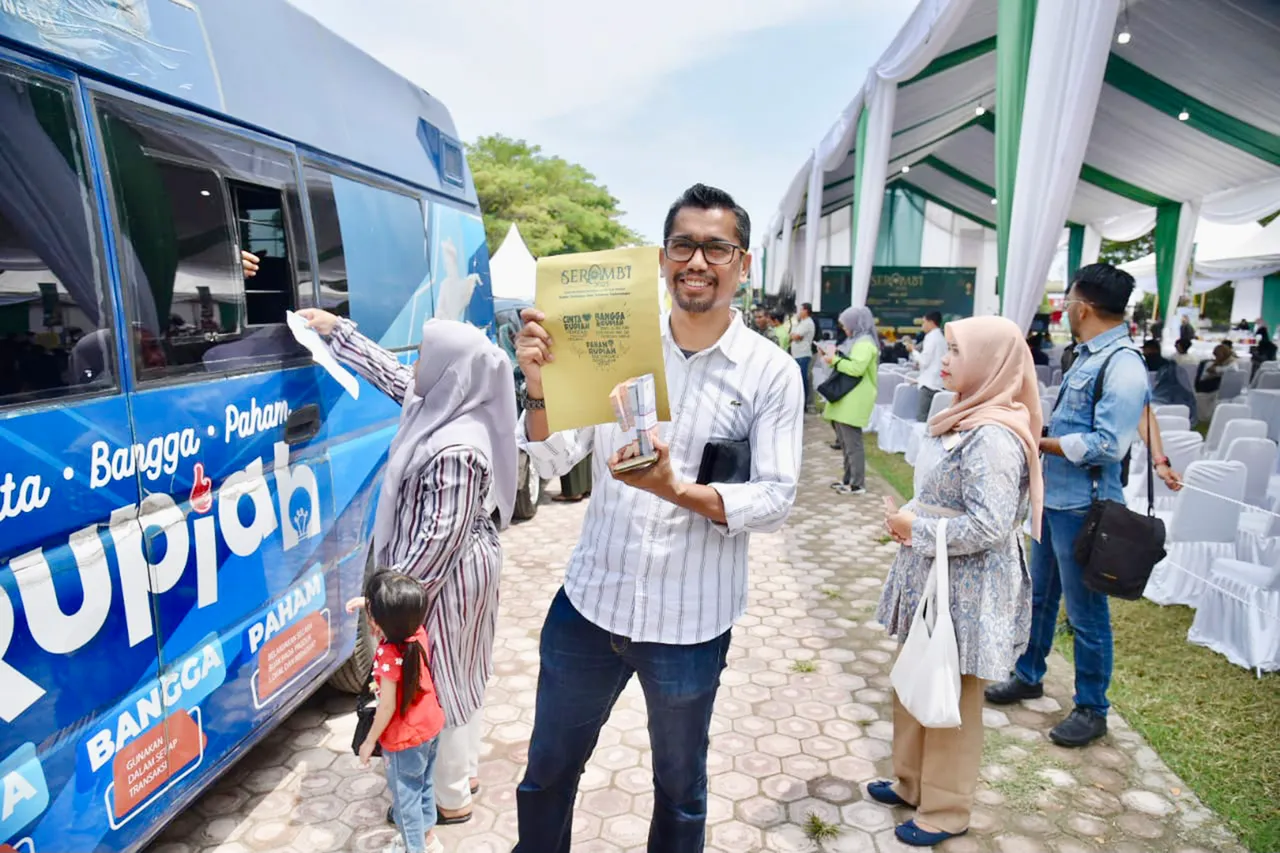
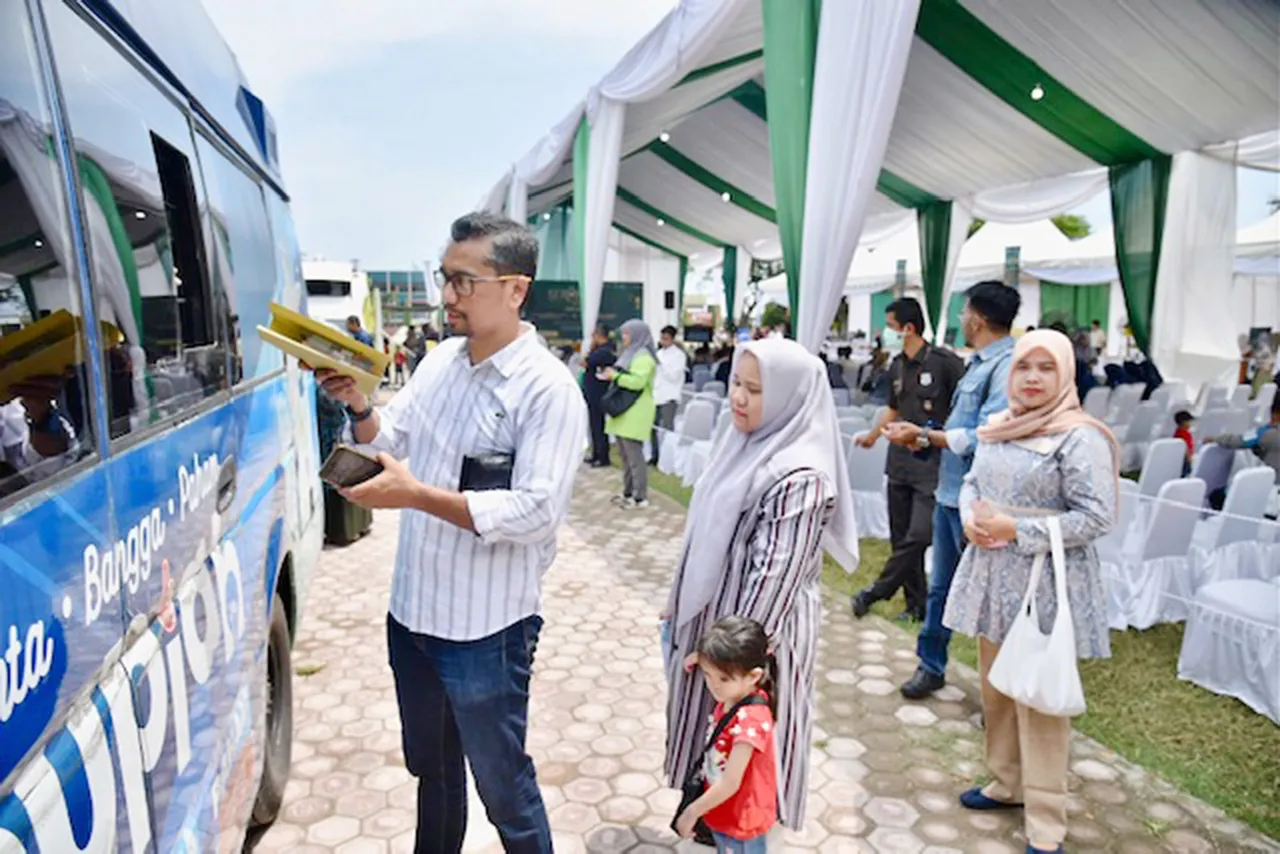
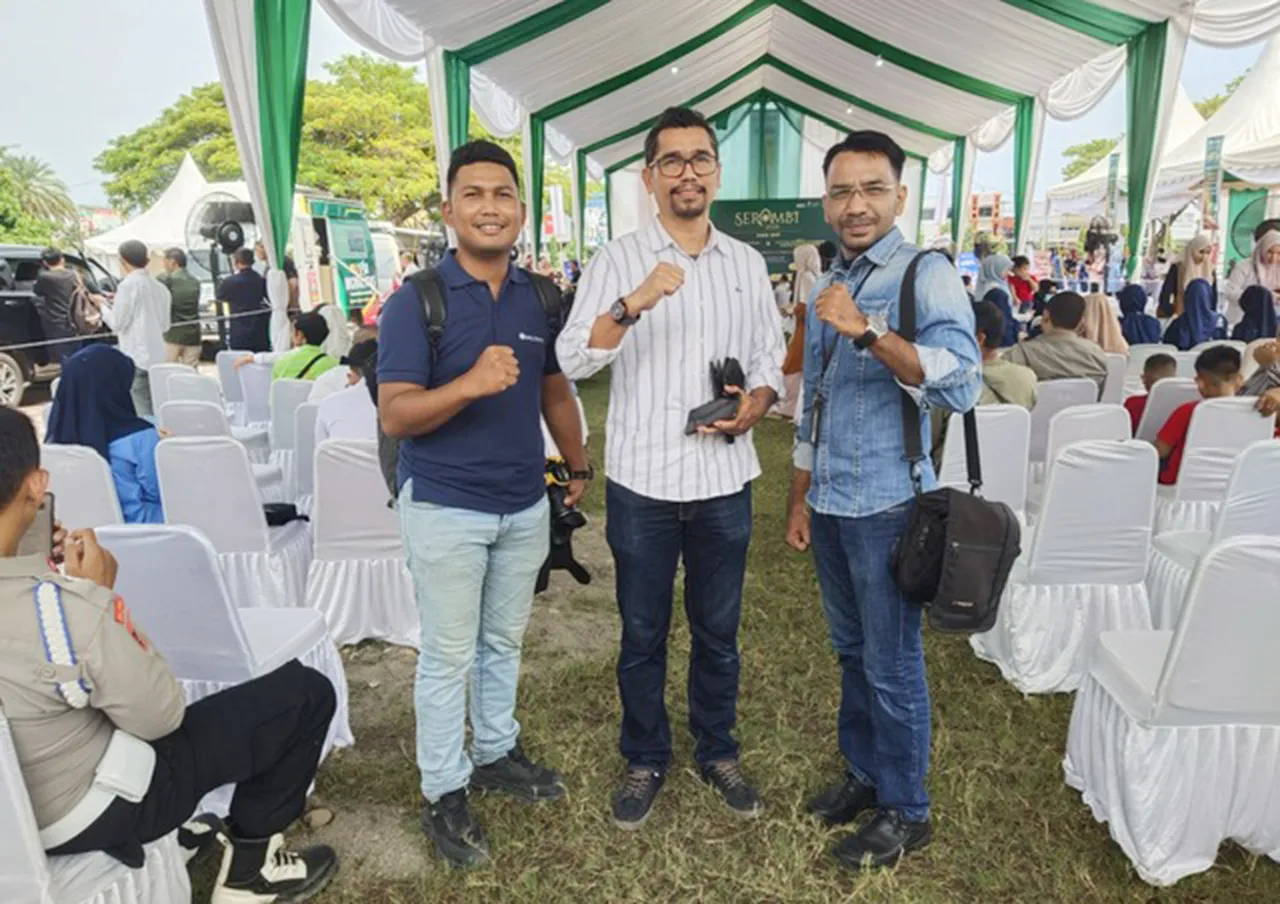
The MSME is fostered by Bank Indonesia Lhokseumawe Representative Office. In addition, at the location there are also sales of cheap basic necessities held by Bank Indonesia. There are also sales of several household appliances for Rp6 through Qris payments. In essence, there are many things that residents can do at the location while killing boredom.
After showing their ID cards and proof of online ordering at the front access door and getting a queue number, residents must wait until their queue number is called.
The exchange is served by around five vehicles from Bank Indonesia, Bank Aceh, BSI, and Bank Danamon.
The problem is not over yet. Residents can only get the amount of money according to their order. Even if you want to exchange a block of Rp2,000 notes, it is not allowed as long as it is not on the order list.
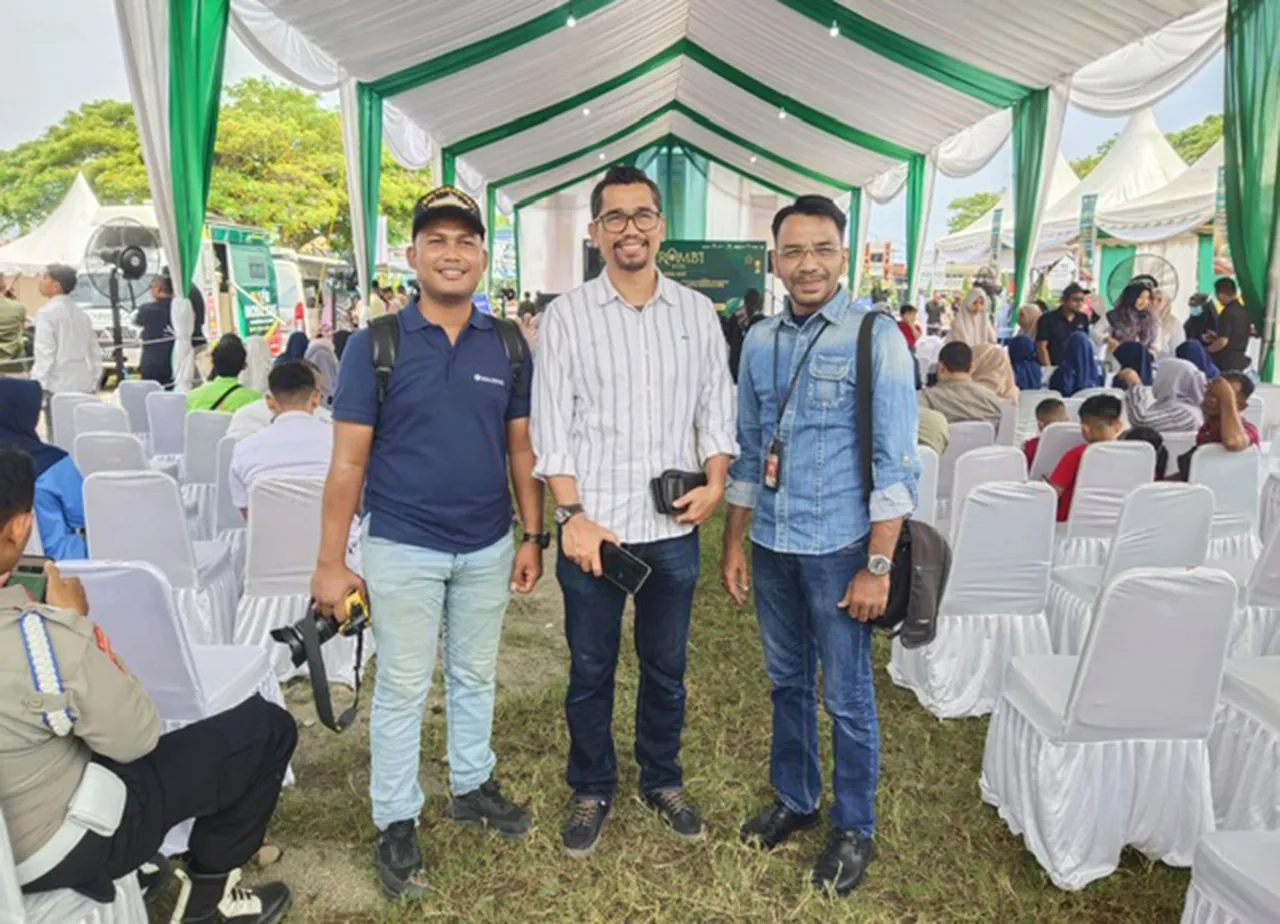
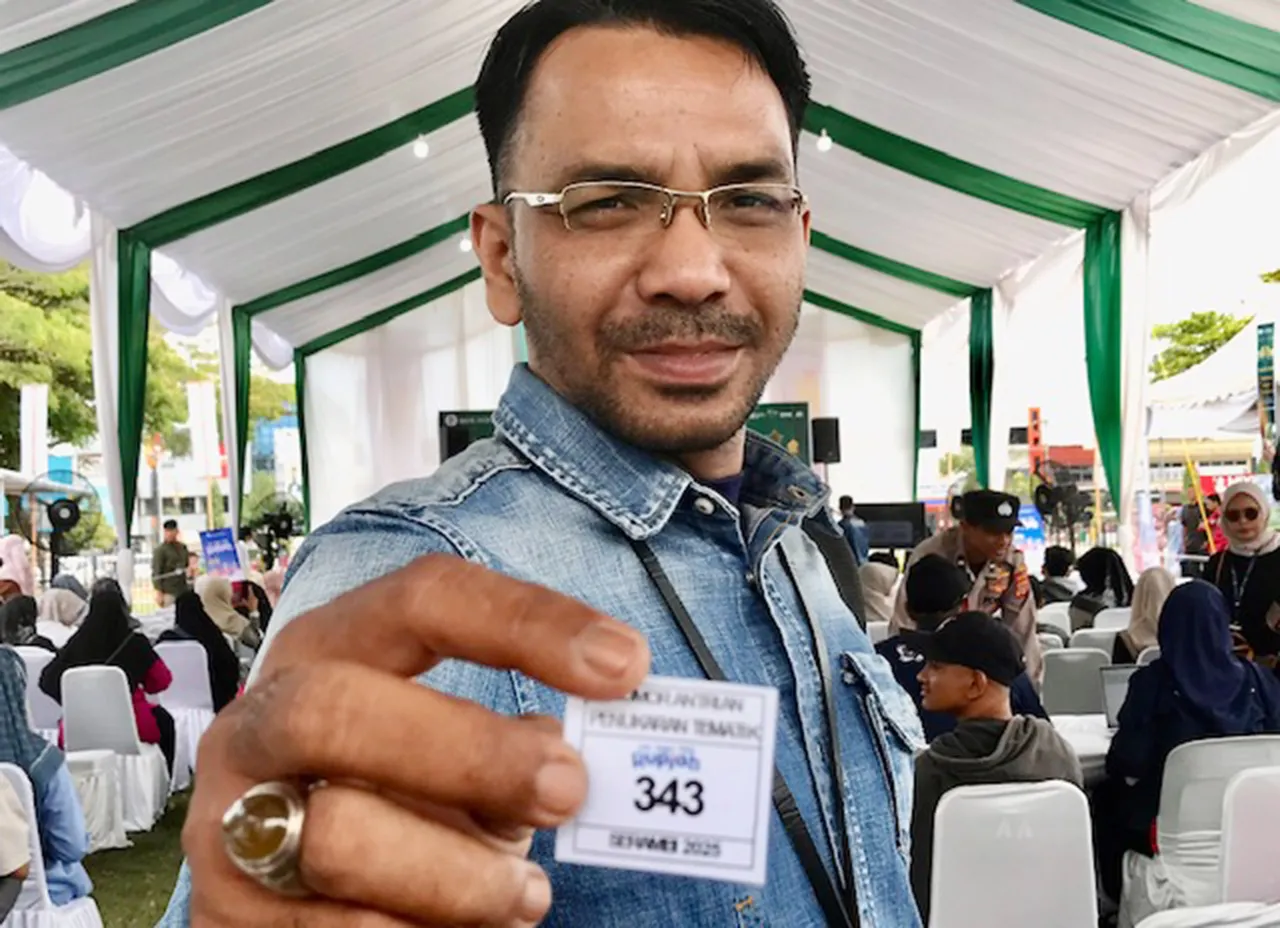
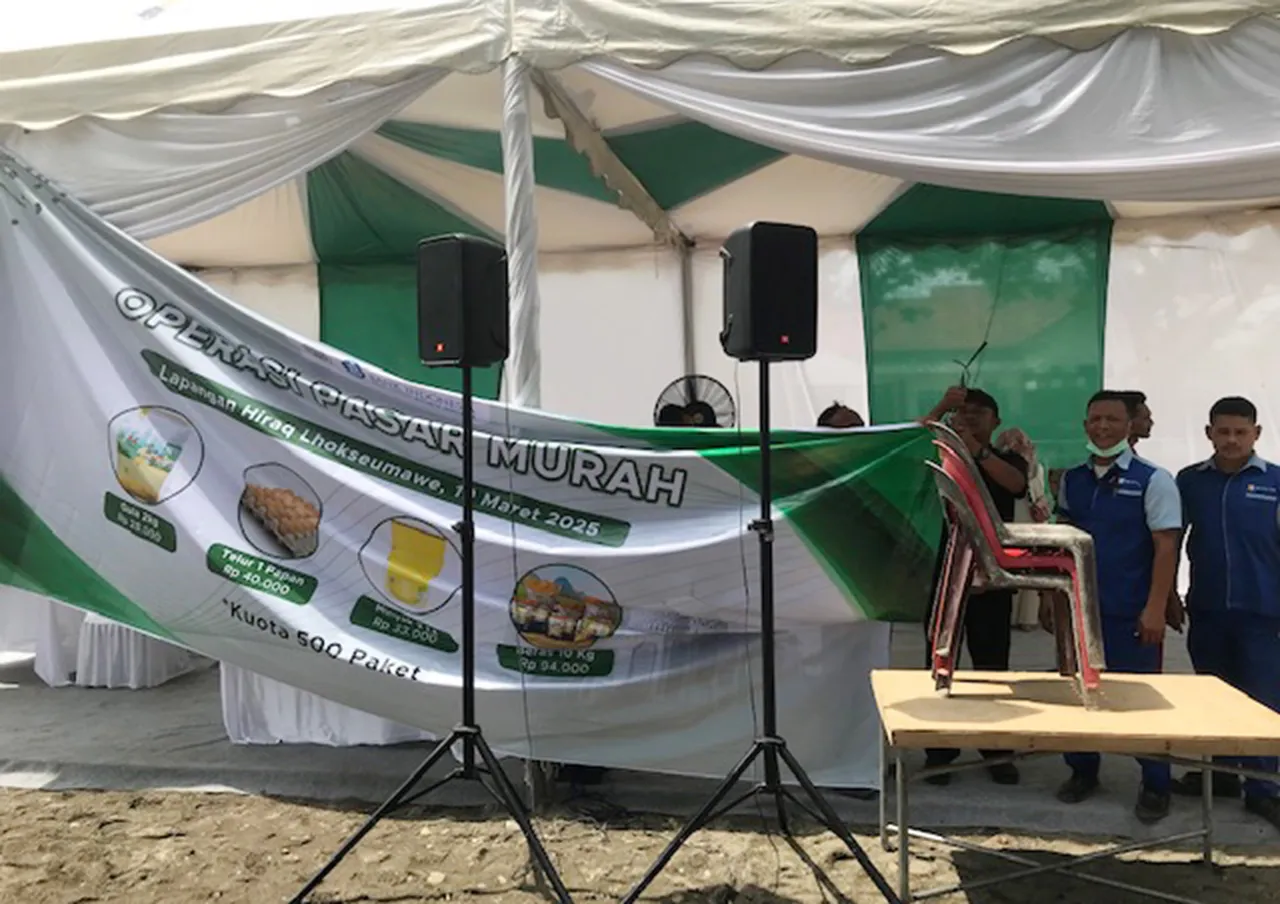
The method of exchanging rupiah by ordering in advance online, on the one hand, makes it easier for residents and banks to provide the denominations according to their needs.
However, because not all residents understand the online method, many are disappointed.
Several residents who knew that there was a rupiah exchange service at Lapangan Hiraq Lhokseumawe, had to go home disappointed because they did not know that they had to order online beforehand. In fact, they are small traders at Pasar Inpres and Pasar Pusong Lhokseumawe who do not understand internet access.
In a conversation while the queue was taking place, a Danamon Bank customer admitted that he did not get information about the exchange. He came to Bank Danamon to exchange money, but there was none. "Then the bank employee helped me make an order via the internet," said the man.
Witnessing the long and complicated struggle to exchange rupiah notes, residents hope that the exchange process can also be carried out without ordering online first. "Maybe it can be distributed through banks in Lhokseumawe. This is to serve the unserved or those who live far from the city," suggested Rizal.[]
